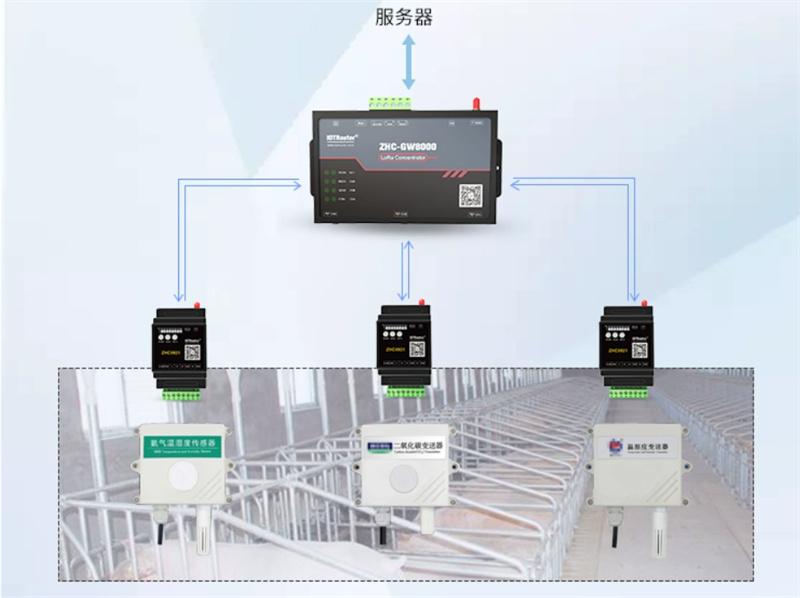Wireless gateway is an important network device used to implement wireless communication and networking functions. With the continuous advancement of technology, wireless gateways are widely used in various fields. This article will introduce the definition, function and advantages of wireless gateway to help readers better understand and apply wireless gateway technology.

What is a wireless gateway? A wireless gateway is a device that connects wired and wireless networks and can realize data transmission and conversion between different networks. It usually has wired network interfaces (such as Ethernet ports) and wireless communication interfaces (such as Wi-Fi, Bluetooth, etc.), which can seamlessly connect wired networks and wireless networks. Wireless gateways act as bridges, enabling interconnection between different networks.
Wireless gateways serve many purposes.
1. Wireless gateway can expand and strengthen the coverage of wireless network. Through wireless gateways, wireless network hotspots can be established in different locations to provide wider wireless coverage and facilitate users’ wireless access.
2. Wireless gateway can realize intercommunication between different networks. Whether it is a wired network or other wireless networks, data transmission and interaction can be carried out through wireless gateways, realizing the integration of multiple networks.
3. Wireless gateways can also provide network connection security. Network access through wireless gateways can be encrypted and authenticated to prevent unauthorized user intrusion and data leakage.
The advantages of wireless gateways are mainly reflected in the following aspects.
1. The wireless gateway provides a convenient and fast wireless access method. Users only need to easily access the wireless network with suitable equipment within the coverage area and enjoy high-speed Internet services.
2. Wireless gateways can provide more flexible network expansion methods. Traditional wired networks require laying a large number of network cables, while wireless gateways can more easily expand network coverage through wireless signal coverage.
3. Wireless gateways can also provide mobility and reliability. Users can access the network anytime and anywhere, and the continuous improvement of wireless communication technology ensures the stability and reliability of wireless gateways.

In short, as an important network device, wireless gateway expands the coverage of the network by seamlessly connecting wired networks and wireless networks, realizes interoperability between networks, and provides convenient and fast wireless access methods. At the same time, wireless gateways have the advantages of flexibility, mobility, and reliability. It is believed that with the continuous development of technology, wireless gateways will play an important role in more fields and bring more convenience and comfort to people’s lives.